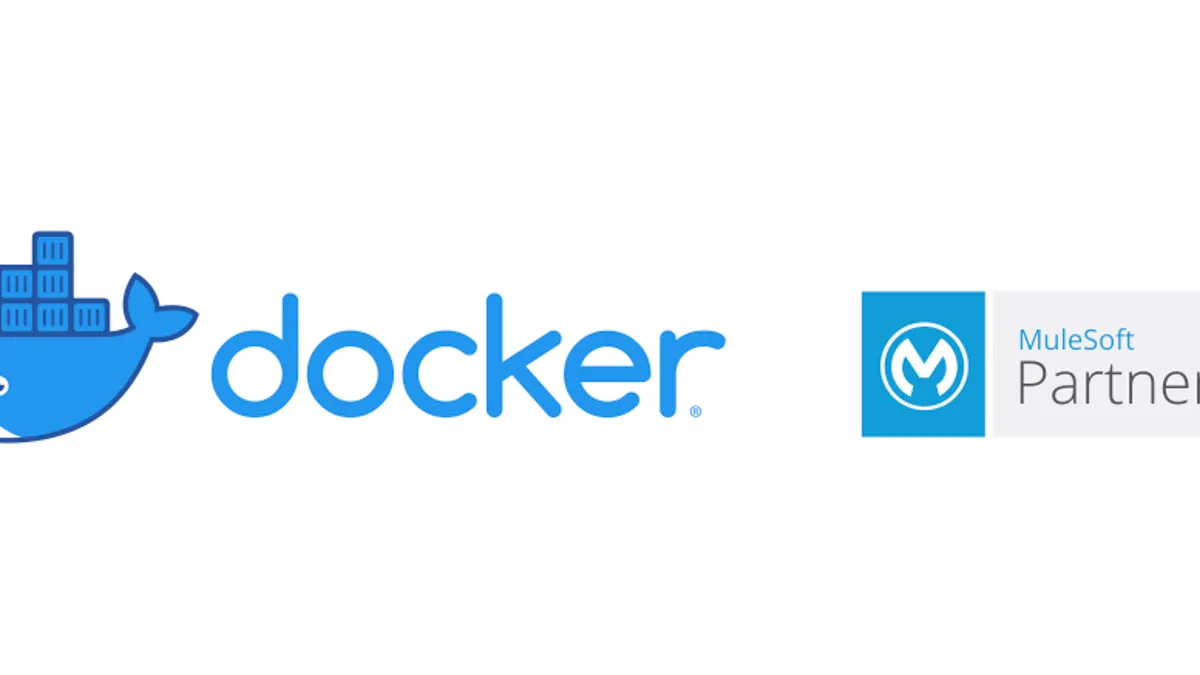Dive Brief:
- Enterprise container platform Docker and application network platform MuleSoft announced a partnership Thursday to help customers move to the cloud.
- MuleSoft helps customers integrate applications and data, while Docker provides a container platform to boost agility and portability in cloud environments. The partnership will help customers take full advantage of hybrid cloud environments and bring critical legacy applications into the fold, according to the announcement.
- It will help customers connect legacy applications with application program interfaces (API) into their application network, as well as provide tools for legacy applications without APIs, including blueprints and automation capabilities for containerization and modernization. New applications in a customer's network will automatically be accessible and scalable in Docker's platform and provide greater agility and reusability, according to the announcement.
Dive Insight:
Salesforce acquired MuleSoft earlier this year for $6.5 billion in a bid to help customers connect disparate parts of IT and data. With the announcement of the Docker partnership came an undisclosed investment by Salesforce Ventures in Docker.
Salesforce invests millions in tech companies all over the world, and the Docker investment is in line with what its customers are doing.
There has been a "fundamental shift" in the market, and "every major platform from Salesforce to Workday to ServiceNow to SAP to IBM is realizing that no platform can exist in the long term as an island," Andrew Leigh, VP of alliances at Jitterbit, told CIO Dive in an interview. They have to connect to customer's legacy IT portfolios that still run the majority of the business as well as to other platforms.
Many customers are still held back by the legacy platforms put in place decades ago, often because these platforms are too strategic to the business or too complex to easily migrate.
MuleSoft and Docker provide options for customers to containerize legacy environments or rebuild their environment in a containerized architecture, Leigh said. Hybrid integration and the ability to connect to legacy environments behind a firewall is crucial for the process.
APIs play a key role in integrating legacy environments. APIs can make it easier to connect to a network, but environments without need an API that can deliver a reusable service that connects to the rest of the digital architecture, Leigh said.












